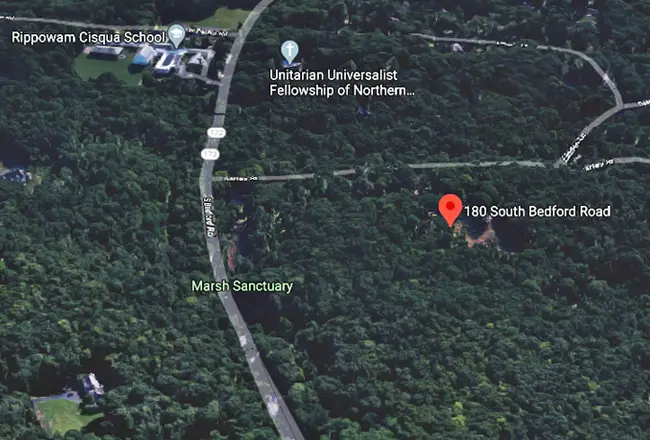Hopes for more federal aid for small businesses seem to have been dashed by President Donald Trump, who yesterday tweeted: “I have instructed my representatives to stop negotiating until after the election when, immediately after I win, we will pass a major Stimulus Bill that focuses on hardworking Americans and Small Business.”
 The Democrat-led House of Representatives passed a $2.2 trillion Covid-19 stimulus proposal on Oct. 1, although chances that the U.S. Senate would follow suit were widely believed to be slim. The Republican-led Senate prefers a roughly $1.6 trillion proposal put forward by U.S. Treasury Secretary Steven Mnuchin.
The Democrat-led House of Representatives passed a $2.2 trillion Covid-19 stimulus proposal on Oct. 1, although chances that the U.S. Senate would follow suit were widely believed to be slim. The Republican-led Senate prefers a roughly $1.6 trillion proposal put forward by U.S. Treasury Secretary Steven Mnuchin.
As for Trump”™s declaration that a stimulus bill will come “immediately after I win,” that prospect is growing increasingly unlikely. Support for Democratic candidate Joe Biden has increased by about 4% since mid-September, according to the latest Reuters/Ipsos poll, which finds Biden leading Trump by a 52% to 40% majority among likely voters.
Trump also failed to get a bump in the polls that some had expected following his hospitalization late last week after showing Covid-19 symptoms.
Democratic House of Representatives Speaker Nancy Pelosi dismissed Trump”™s comment, saying he would lose the election and Congress would pass stimulus during the “lame-duck” session when a president awaits replacement by his successor.
“Forget about him,” House Speaker Nancy Pelosi (D-California) said in response to Trump”™s tweet. “Four weeks, six, seven hours from now, lame duck.”
Senate Majority Leader Mitch McConnell (R-Kentucky) expressed support for Trump”™s statement, telling reporters that “his view was that they were not going to produce a result and we need to concentrate on what”™s achievable.”
Trump added confusion to the picture later yesterday by issuing a series of tweets asking Congress to quickly pass $25 billion in funding for passenger airlines, $135 billion for small businesses and provide $1,200 stimulus checks for Americans. “I am ready to sign right now,” he wrote.
Either way, small business representatives took a dim view of Trump”™s actions.

“Every day, I lose another restaurant ”“ at least one,” Connecticut Restaurant Association Executive Director Scott Dolch told the Business Journal. “We don”™t know what”™s going to happen (in Congress), but the real losers are going to be small businesses, not just in Connecticut but around the country.”
Noting that some $130 billion remains in the federal government”™s Paycheck Protection Program (PPP), Dolch said, “The big question we”™re asking is of the SBA (Small Business Administration) and Steve Mnuchin is, ”˜What”™s going on with that money? Is it just going to sit there?”™”
Freeing up those funds could help small businesses survive at least into 2021, Dolch said, adding that both the Democratic and Republican bills include another round of PPP. “At least carve that out (of the bills) and pass that,” he said.
The timing of the Nov. 3 election “isn”™t helping things,” he continued. “Neither side wants to give the other side a win, unfortunately.”
On average, restaurants have spent $7,000 to $10,000 over the last six months on equipment like Plexiglas dividers, tents and heaters to encourage diners”™ visits. With Phase 3 of Connecticut”™s reopening ”“ which includes increasing restaurants”™ allowable indoor capacity from 50% to 75% ”“ arriving tomorrow, Dolch said the situation was still “scary.”
He said that, anecdotally, over 150 of Connecticut”™s 8,500 restaurants have shuttered since the pandemic began; “The real number is a lot higher.”
CBIA President and CEO Chris DiPentima also expressed disappointment, saying that, “We need to do something soon.
“This is not a political issue,” DiPentima said. “It’s a business and economic issue. And here in the Northeast, with the colder climate, it’s going to be even more difficult for companies that rely heavily on outdoor access.”
“Many small businesses and their employees cannot afford to wait ”“ they need Washington to act,” said Kevin Kuhlman, vice president of Federal Government Relations at the National Federation of Independent Business (NFIB), in a statement released after Trump”™s tweets.
“More than one in five small business owners will likely be forced to close their doors under current economic conditions in the coming months, according to our recent surveys,” Kuhlman said. “We urge Congress and the administration to continue negotiations and consider legislation that has broad bipartisan agreement ”“ small business recovery assistance ”“ so that small businesses, our nation”™s economic engine, can continue to move forward.”
“Hardworking Americans whose livelihoods depend on travel and tourism cannot wait until after the election for relief,” U.S. Travel Association President and CEO Roger Dow said. “The reality is that small businesses in every pocket of America are shuttering ”“ they needed relief months ago, which has been made clear week after week”
Dow, citing new data from Tourism Economics, shows that without immediate aid, 50% of all travel-supported jobs will be lost by December, representing an additional loss of 1.3 million jobs.
“As travel supported 11% of all pre-pandemic jobs, it is simply not possible for the U.S. to expect a nationwide economic recovery without meaningful federal relief,” he said.
“On behalf of America”™s travel workers,” Dow continued, “we are disheartened in the extreme that Congress and the administration failed to reach agreement on the relief this industry so desperately needed, despite clear evidence of mounting harm.”





















